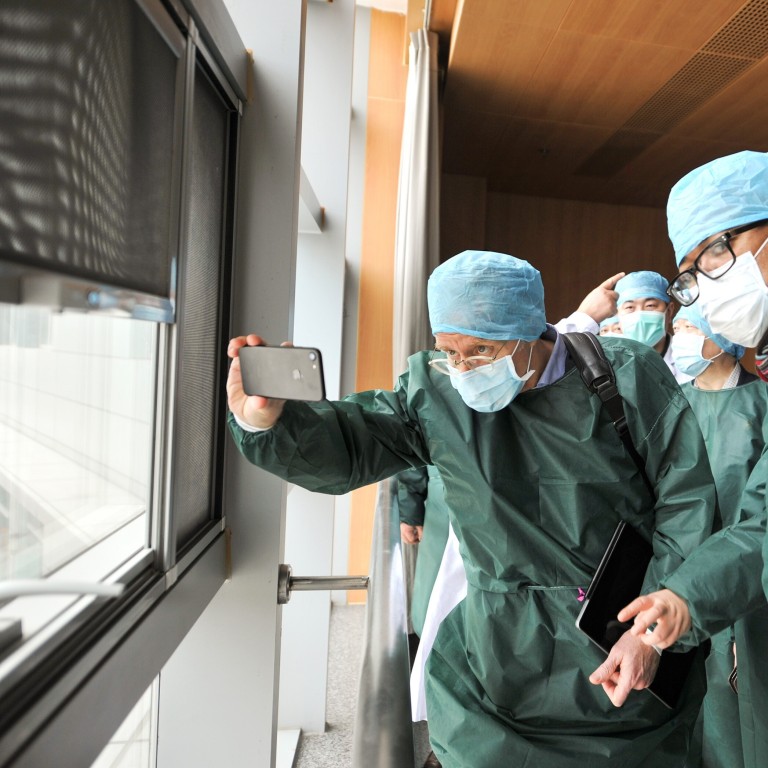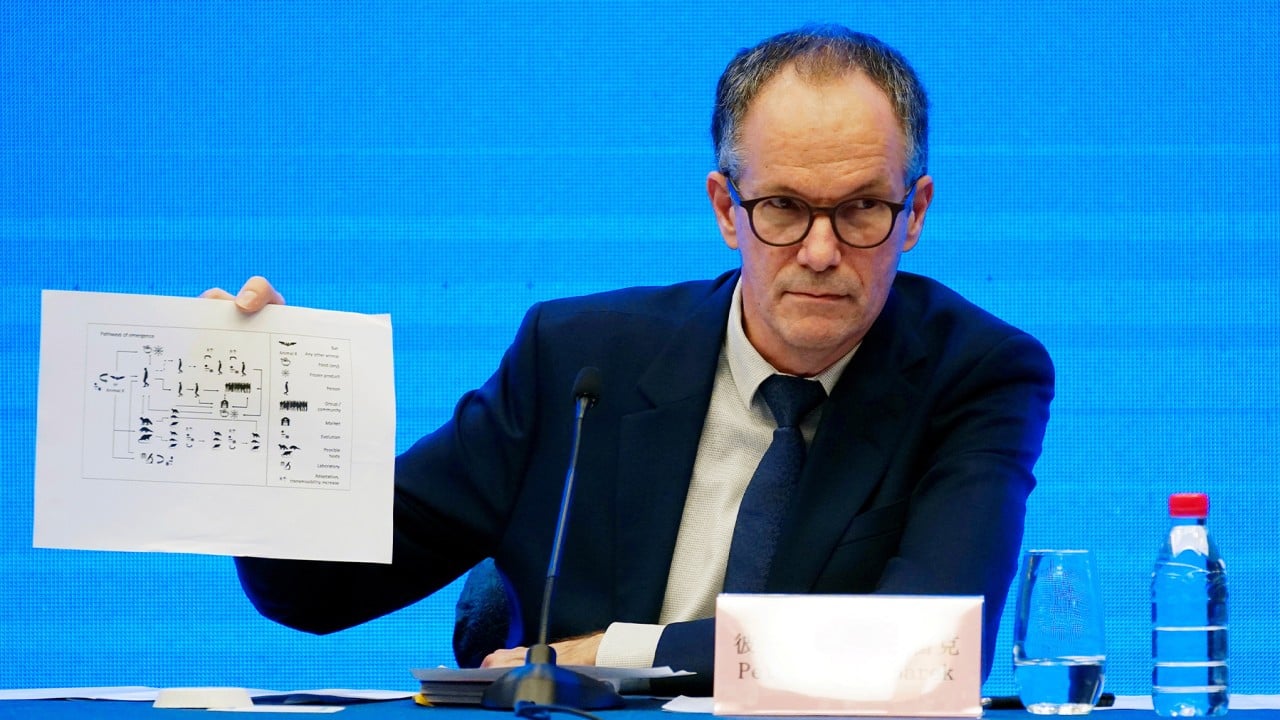
WHO readies Covid-19 origins report as demands grow for more transparency on China investigation
- US welcomes decision to release full report but group of 26 academics says a new, independent probe is needed
- In open letter, scientists say WHO mission to Wuhan in January lacked independence necessary for thorough study
“Given the interest in this area, and given the tremendous demand for detailed information, we saw with that a huge and understandable demand for information,” he said.
China hits back at US over WHO coronavirus mission
Some of the international researchers who travelled to Wuhan in January for the 28-day mission had earlier indicated they did not get access to all the data they would like to have seen during the visit.
The US and Britain have called on China’s authorities to share all information, while a group of academics has said a new, independent probe is needed.
The White House welcomed the decision not to release a summary before the full report. “That was a positive step, which was taken in part because of our involvement and engagement,” press secretary Jen Psaki said.
Last week a group of 26 scientists and other professionals said the WHO mission to Wuhan lacked the independence needed for a full investigation.
“Because we believe the joint [WHO] team process and efforts to date do not constitute a thorough, credible, and transparent investigation, we call on the international community to put in place a structure and process that does,” the group wrote, in a letter published in The Wall Street Journal in the US and Le Monde in France.

01:56
WHO ends Covid-19 mission in Wuhan, says lab leak ‘extremely unlikely’
The group said the WHO-backed team in China did not have the mandate or access to fully evaluate all hypotheses around the origin of the disease, including the possibility it was the result of a laboratory or research-related accident.
While in Wuhan, the WHO team said the virus had “most likely” come from a bat and infected humans through an intermediary animal, a view held by most scientists. The team said it was “extremely unlikely” the virus spread as the result of a laboratory incident in Wuhan – a hypothesis which revolves around the Wuhan Institute of Virology, one of the world’s leading centres for the study of bat coronaviruses.
Peter Ben Embarek, leader of the research team, told Science magazine the mission was not equipped for a full laboratory audit to further assess the lab leak hypothesis. WHO chief Tedros Adhanom Ghebreyesus later said “all hypotheses” for the origins of the virus remained on the table.
Two signatories of the open letter interviewed by the South China Morning Post said their interest was not in promoting any one theory, but instead in pushing for full access to data and open assessment of hypotheses, including the possibilities that the virus had come from natural origins or that it could have been linked to a laboratory or research accident.
WHO team says coronavirus ‘most likely’ spread from animal, not lab leak
“We should let the data guide us ultimately, and there’s currently a paucity of data,” said Nikolai Petrovsky, a vaccinologist with the College of Medicine and Public Health at Flinders University in Australia, who signed the letter.
“What we have to do is stay in the middle, keep these questions open and collect data until eventually, hopefully we will get to a point where the data says one option is far more likely than the others.”
Petrovsky said he and other members of the group, which has been meeting informally online since January, felt there was a bias in the international scientific community against exploring if the emergence of the virus could be linked to a laboratory accident.
Prominent voices across the scientific community have rejected this theory, along with others that the virus was genetically manipulated in a lab. They point out that in recent decades a number of viruses have emerged naturally through increased regular contact between animals and people as human populations have surged.
They also say there is no public record of a highly similar virus to SARS-CoV-2 – which causes Covid-19 – being isolated in any lab. In addition, a genetic analysis published in Nature Medicine last spring found “strong evidence” there was no genetic manipulation of the new coronavirus. Others argue it is possible there were viruses in the lab, or handled during research, that were not publicly known.
Genetic engineer Alina Chan, another signatory to the open letter and a researcher at the Broad Institute of MIT and Harvard, said it was important for the WHO team to be clear in the report about their limitations when evaluating hypotheses. “If they don’t have the mandate and they didn’t have the access, just say so right away,” she said.
Wuhan virology lab’s long history of scientific collaboration
China has defended its transparency and the work of the mission, in which international and Chinese researchers worked together. “The experts of the two sides had full and candid exchanges, and the conclusion reflected the consensus of both sides, which is objective, scientific and authoritative,” foreign ministry spokesman Wang Wenbin said.
Wang called the open letter a political pursuit “with the presumption of guilt”, while reiterating China’s stance that subsequent investigations into the origins of Covid-19 needed to take place in other countries.
WHO officials also weighed in on the public letter, saying the organisation had heeded the call of its member states in setting up the mission. WHO chief Ghebreyesus called for observers to wait for the report’s release. “Then you will see for yourself,” he said, adding that “everything that happened during the trip will be presented transparently”.

